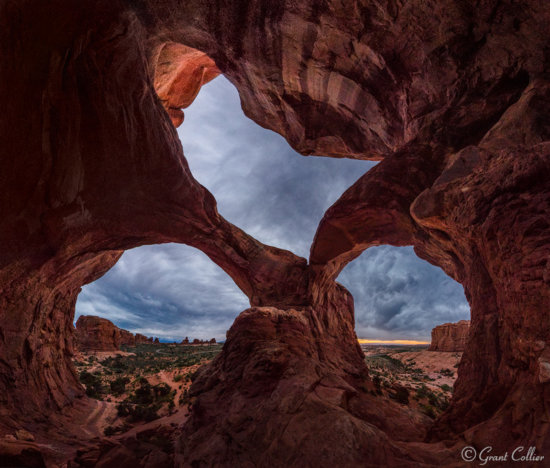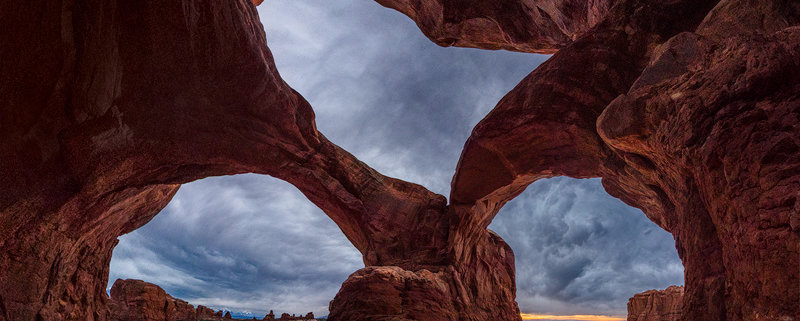My Most Important Piece of Photo Equipment
I am about to reveal something that I have never told anyone before in my life. So drop everything you are doing and focus solely on this article. It may just change your life. I am about to reveal the most important piece of equipment I use for my photography. If I use this piece of equipment properly, it really doesn’t much matter what other gear I own. I can almost always capture images I am happy with. I’m not exaggerating when I say this equipment has the potential to improve your images ten-fold, maybe even one-hundred-fold. I truly don’t think I could live without it. I don’t carry this equipment in my camera bag, but I try to make sure it is always with me. And, no, it’s not my tripod, even though I do always carry one. Now, you’re probably thinking there’s a catch. It must cost hundreds of thousands of dollars. But shockingly, I did not pay a single dime for it.
This piece of equipment is…. (drumroll, please) … my brain! Now, I certainly don’t claim to have the most advanced brain, and it is far from the newest model. There are many better, shinier brains out there. However, I try to make up for its obvious limitations by using it as much as I possibly can. I try to constantly experiment with different ways of shooting, and I read advice from photographers I admire.

I blended separate exposures of the sky and land during twilight to maximize detail and minimize noise in this image. This would have been difficult, perhaps even impossible, without my brain.
I have seen people out shooting with very expensive photo equipment, who unfortunately appear to have left their brains in their car. Others seem to have forgotten it entirely, leaving it somewhere back home. I met a man in Peru who had all the latest photo equipment. He was a hobbyist, but had better gear than I did. However, I later saw him off in the distance taking handheld shots of his wife. He had a flash that would go off with every shot, but it was pointed straight up into the air, while he was shooting straight ahead. I thought that if only he had remembered that extremely valuable piece of equipment between his ears, he could have saved a ton of money and gotten better images with a camera phone. Then again, he may have been an undercover operative sending secret messages to aliens above him with his flashes. I may have been too quick to judge.
Only your brain can determine when the lighting and clouds will be best at a certain location, how to best compose the shot, and the proper camera settings to get the image you envision. The role of photography gear is rather limited compared to this.

When I saw storm clouds throughout the sky at Arches National Park, I knew this would be an ideal time to capture even lighting throughout the scene in an ultra-wide image of Double Arch. I stitched many images to capture a 270-degree view in all directions.
I’m not saying that other photo equipment is of no value. It certainly is. But I don’t recommend becoming a “gearhead” and constantly reading up on all the latest equipment, thinking that a new lens or camera will magically improve your images. Rather, you should spend time learning the craft of photography, either through books, videos or articles or by experimenting out in the field. As you learn, you’ll also come across information on what types of photo equipment work best in different situations. If you find you can’t quite get the shots you want, you will know what new equipment might help with this. You can then do research on which camera or lens is rated best for your specific need. This is a practical and cost-effective way of adding equipment only as you truly need it.

I did recently purchase a dome for a GoPro camera, as this allowed me to capture over/under water photos in the Cook Islands. With a specific need in mind, the new equipment was very useful.
I’ve owned the same primary camera and most of the same lenses for five years now. During this time, I believe my photography has improved significantly. Since I can’t attribute the improvement to the photo gear, I figure it must be an unbelievable run of dumb luck or an upgrade to my brain. Hopefully, it’s the latter. I have a bad back that has prevented me from shooting nearly as much as I used to. I therefore find that carefully planning my shots and making the most of the time I have to shoot is of the utmost importance.
I’ve also learned more about post-processing images, which is vital, especially for my night photography. I’m able to overcome the limitations of cameras in low-light situations by combining multiple exposures, either through stacking, stitching, or focus stacking images. These techniques can be done with any dSLR camera and a tripod.
So the next time you are out shooting, don’t forget to take your brain with you. Try to obtain upgrades to it whenever and wherever possible. It is by far the most advanced and valuable piece of equipment you will ever own.



I agree with the principle here, although I think that technically the most important piece of equipment is the existence of a camera. You cannot take photos without a camera, but you can take photos if you have a camera but don’t use your brain. Even monkeys can take photos if they have a camera (just ask David Slater).
But I do agree it is highly unlikely anyone will take a *great* photo without both a camera and a well-engaged brain…
I would have to disagree here, Simon. My pictures often come out much better in my mind than they do in the camera. But I would agree that you do need a camera to share your pictures with other people. :)
Oh so very true! It doesnt matter how fancy your gear is, it doesnt drag itself out of bed at 5am for a sunrise, or save money for that overseas holiday, or walk itself into the mountains. Your camera doesnt decide where to position itself, what lens it will mount and how the image will be composed. Our cars might be capable of self driving but our cameras arent.
All true. Unfortunately, my particular brain often isn’t willing to drag itself out of bed at 5am, either.
Great article, Grant. Are there any particular brands of brain you can recommend?
Don’t press him for an answer. That’s his trade secret.
Unfortunately, I’m the wrong person to ask. As I mentioned, I have a rather outdated model with limited processing power. Occasionally, it forgets that it had set the ISO to 6400 to take night shots and keeps shooting at that setting during the day. Recently, it even forgot to take the lens cap off at night and couldn’t determine why the photos were coming out pitch black. I hope you’re able to find a better brand.
LOL!! That is the best reply I have heard. ;)
I guessed the answer to this trick question and couldn’t agree more. However, for non-professionals it isn’t always so easy. I once spent the night in a tent at -8C and got up before dawn to hike to the moraine lake in front of Cerro Torre. I installed an ND Grad and got some good photos, but I forgot to change the f stop to something with a larger depth of field. Having had neither sleep not coffee my brain was not fit for purpose and I don’t do enough field trips to run on automatic
Modern DLSRs have dozens of parameters and it is only too easy to forget one and leave it set to a previous value…
Don’t worry, Davud. This happens to professionals too. The only way I seem to learn sometimes is by making mistakes often enough that I eventually remember not to repeat them.
My thought as I read your article was that the second most important piece of gear for your images is your computer software. It does take some work and imagination to manipulate the camera images in the software to get your final image, or should that be images, since the software opens up an infinite variety of possibilities. Maybe in the future we will not even need cameras, lenses and all those weighty accessories. We will just have a chip implant into our brains and use our imaginations to produce whatever image we want to present.
I do agree that post-processing is very important nowadays. Of course, the brain is perhaps even more important for this than for taking pictures. Having good software without using your brain can result in the most hideous images out there. :)